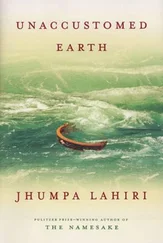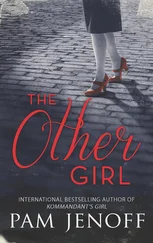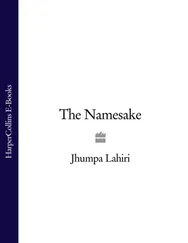Having studied Latin for many years, I find the first chapters of this textbook fairly easy. I manage to memorize some conjugations, do some exercises. But I don’t like the silence, the isolation of the self-teaching process. It seems detached, wrong. As if I were studying a musical instrument without ever playing it.
At the university, I decide to write my doctoral thesis on how Italian architecture influenced English playwrights of the seventeenth century. I wonder why certain playwrights decided to set their tragedies, written in English, in Italian palaces. The thesis will discuss another schism between language and environment. The subject gives me a second reason to study Italian.
I attend elementary courses. My first teacher is a Milanese woman who lives in Boston. I do the homework, I pass the tests. But when, after two years of studying, I try to read Alberto Moravia’s novel La ciociara ( Two Women ), I barely understand it. I underline almost every word on every page. I am constantly looking in the dictionary. 
In the spring of 2000, six years after my trip to Florence, I go to Venice. In addition to the dictionary, I take a notebook, and on the last page I write down phrases that might be useful: Saprebbe dirmi? Dove si trova? Come si fa per andare? Could you tell me? Where is? How does one get to? I recall the difference between buono and bello . I feel prepared. In reality, in Venice I’m barely able to ask for directions on the street, a wake-up call at the hotel. I manage to order in a restaurant and exchange a few words with a saleswoman. Nothing else. Even though I’ve returned to Italy, I still feel exiled from the language.
A few months later I receive an invitation to the Mantua literary festival. There I meet my first Italian publishers. One of them is also my translator. Their publishing house has a Spanish name, Marcos y Marcos. They are Italian. Their names are Marco and Claudia.
I have to do all my interviews and presentations in English. There is always an interpreter next to me. I can more or less follow the Italian, but I can’t express myself, explain myself, without English. I feel limited. What I learned in America, in the classroom, isn’t sufficient. My comprehension is so meager that, here in Italy, it doesn’t help me. The language still seems like a locked gate. I’m on the threshold, I can see inside, but the gate won’t open. 
Marco and Claudia give me the key. When I mention that I’ve studied some Italian, and that I would like to improve it, they stop speaking to me in English. They switch to their language, although I’m able to respond only in a very simple way. In spite of all my mistakes, in spite of my not completely understanding what they say. In spite of the fact that they speak English much better than I speak Italian.
They tolerate my mistakes. They correct me, they encourage me, they provide the words I lack. They speak clearly, patiently. Just like parents with their children. The way one learns one’s native language. I realize that I didn’t learn English in this fashion.
Claudia and Marco, who translated and published my first book in Italian, and who were my hosts the first time I went to Italy as a writer, give me this turning point. In Mantua, thanks to them, I finally find myself inside the language. Because in the end to learn a language, to feel connected to it, you have to have a dialogue, however childlike, however imperfect. 
Returning to America, I want to go on speaking Italian. But with whom? I know some people in New York who speak it perfectly. I’m embarrassed to talk to them. I need someone with whom I can struggle, and fail.
One day I go to the Casa Italiana at New York University to interview a famous Roman writer, a woman, who has won the Strega Prize. I am in an overcrowded room, where everyone but me speaks an impeccable Italian.
The director of the institute greets me. I tell him I would have liked to do the interview in Italian. That I studied the language years ago but I can’t speak well. 
“Need practicing,” I say.
“You need practice,” he answers kindly.
In 2004 my husband gives me something. A piece of paper torn from a notice that he happened to see in our neighborhood, in Brooklyn. On it is written “Imparare l’italiano,” “Learn Italian.” I consider it a sign. I call the number, make an appointment. A likable, energetic woman, also from Milan, arrives at my house. She teaches in a private school, she lives in the suburbs. She asks me why I want to learn the language. 
I explain that I’m going to Rome in the summer to take part in another literary festival. It seems like a reasonable motivation. I don’t reveal that Italian is a fancy of mine. That I nurture a hope — in fact a dream — of knowing it well. I don’t tell her that I’m looking for a way to keep alive a language that has nothing to do with my life. That I am tortured, that I feel incomplete. As if Italian were a book that, no matter how hard I work, I can’t write.
We meet once a week, for an hour. I’m pregnant with my daughter, who will be born in November. I try to have a conversation. At the end of every lesson, the teacher gives me a long list of words that I lacked during the conversation. I review it diligently. I put it in a folder. I can’t remember them.
At the festival in Rome I manage to exchange three, four, maybe five sentences with someone. After that I stop; it’s impossible to do more. I count the sentences, as if they were strokes in a tennis game, as if they were strokes when you’re learning to swim. 
Let’s go back to the metaphor of the lake, the one I wanted to cross. Now I can walk into the water, up to my knees, up to my waist. But I still have to keep my feet on the bottom. That’s just it, I’m forced to act like someone who doesn’t know how to swim.
In spite of the conversations, the language remains elusive, evanescent. It appears only with the teacher. She brings it into my house for an hour, then takes it away. It seems concrete, palpable, only when I’m with her.
My daughter is born, and four more years go by. I finish another book. After its publication, in 2008, I receive another invitation to Italy, to promote it. In preparation I find a new teacher. An enthusiastic, attentive young woman from Bergamo. She, too, comes to my house once a week. We sit next to each other on the couch and talk. We become friends. My comprehension improves sporadically. The teacher is very encouraging, she says I speak the language well, she says I’ll do fine in Italy. But it’s not true. When I go to Milan, when I try to speak intelligently, fluently, I am always aware of the mistakes that hamper me, that confuse me, and I feel more discouraged than ever. 
In 2009 I start studying with my third private teacher. A Venetian woman who moved to Brooklyn more than thirty years ago, who brought up her children in America. She’s a widow, and lives in a house surrounded by wisteria, near the Verrazano Bridge, with a gentle dog that’s always at her feet. It takes me nearly an hour to get there. I ride the subway to the edge of Brooklyn, almost to the end of the line.
Читать дальше













